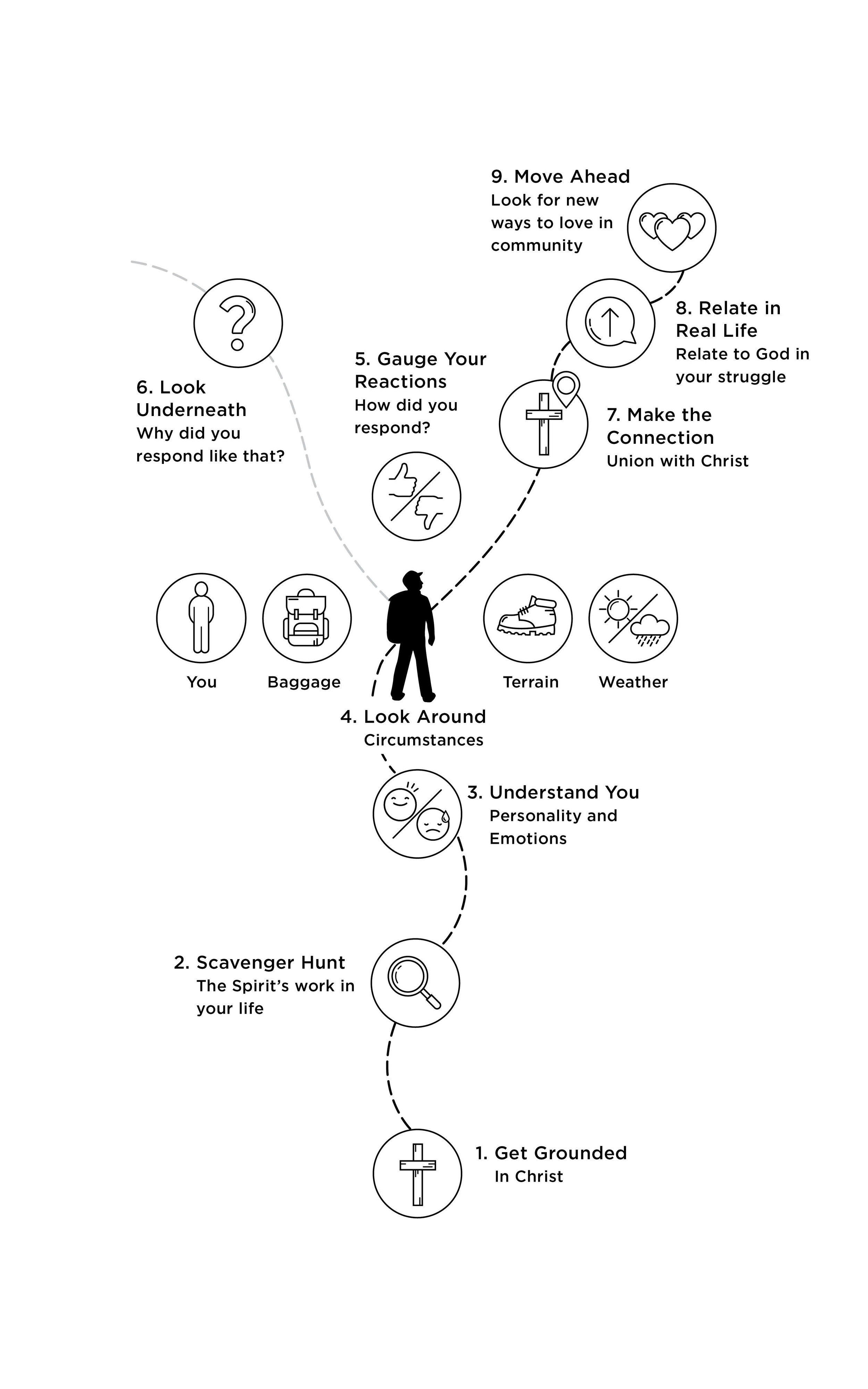Do You Know the Stages of Temptation?
/No one wakes up one morning and decides to become addicted to a substance or behavior. No one decides in the moment to be unfaithful to their spouse. While we do make decisions in the moment, these decisions are connected to a much more complex web of influences, vulnerabilities, desires, and pain over days, weeks, months, and even years. Let no one dupe you into thinking that temptation and giving into temptation is a simple human experience or an easy one to identify, understand, fight, and change.
If James 1:1—18 gives us a broad framework for understanding temptation, James 1:13—18 maps out the illusive stages and progression of temptation in a way that can be useful for us as we seek to fight temptation. If you are looking in the Bible for the language of “addiction” or “use-disorder”, this is one of many places where you will find it:
13 When tempted, no one should say, “God is tempting me.” For God cannot be tempted by evil, nor does he tempt anyone; 14 but each person is tempted when they are dragged away by their own evil desire and enticed. 15 Then, after desire has conceived, it gives birth to sin; and sin, when it is full-grown, gives birth to death.
Let’s focus on verses 13-15 first. Notice the progression of the stages and the analogy that James uses. It is the analogy of seduction, conception, gestation, birth, growth, death. Remember, a baby isn’t conceived, born, and is full grown in a moment. Rather, the process of birth takes almost 1 year! And remember, as it relates to temptation and sin, the consequences often don’t show up until much later than that. Keep that in mind when you think about temptation. Let’s look at the stages that James highlights:
Stage One: Blaming God/Avoiding Responsibility—v. 13 “God is tempting me”
Stage Two: Seduction—vv.1 4-15 “dragged away, evil desires, enticed”
Stage Three: Conception—v. 15 “after desire has conceived”
Stage Four: Birth—v. 15 “gives birth to sin”
Stage Five: Growth—v. 15 "when it is full grown”
Stage Six: Death—v.15 “gives birth to death”
The process that James describes allows for a long time for temptation to develop. Consider any area of your life where you struggle with temptation and disobedience. The struggle has deep and long tentacles in your past. If you struggle with anger, you will be able to see this vulnerability in your hard-wiring, family of origin, significant events/relationships, and current stressors. When you see this, you are able to recognize when you are triggered. And when you are triggered, that micro-moment is connected to a long history that swells into the present in such a way that you feel you have no control over the “instantaneous” instinct to react. The sudden urge to give into temptation started long ago!
If that makes you feel uncomfortable, don’t stop reading. It is in moment’s like these that we need God’s forgiving, rescuing, empowering, enabling grace. And this is precisely where James takes us in verses 16-18.
16 Don’t be deceived, my dear brothers and sisters. 17 Every good and perfect gift is from above, coming down from the Father of the heavenly lights, who does not change like shifting shadows. 18 He chose to give us birth through the word of truth, that we might be a kind of first fruits of all he created.
I have taught through James numerous times. On my first and second pass through this chapter, I felt like these verses must have been inserted later by some incompetent editor. Or worse, James must have been distracted as he penned this letter! But upon further reflection, I see that he knew exactly what he was doing. He ends this section by reminding us of Jesus. Jesus is the good gift from above that the Father has sent, in whom we find new birth. This new birth leads to a new power within for the present and a promised hope for ultimate victory one day!
Are you fighting a battle in your life. This passage normalizes the struggle and calls us to deep reflection and gratitude for your Redeemer. Knowing the stages can be very helpful as you understand your story and your unique areas of vulnerability. Knowing that God has lavished his grace upon you is essential, too!






